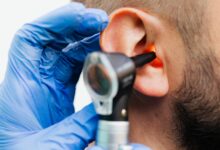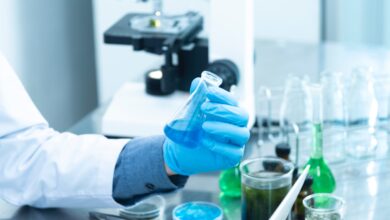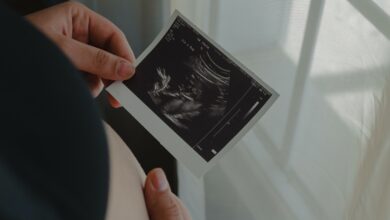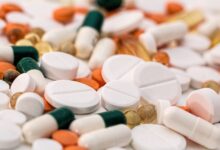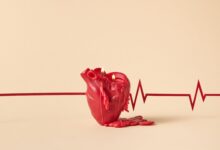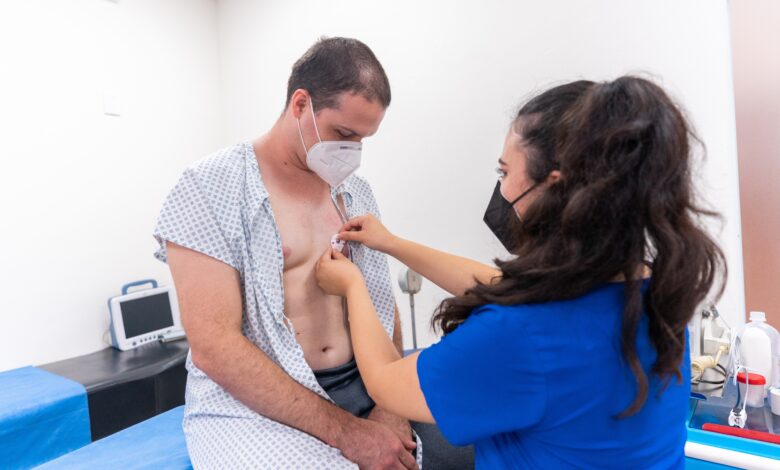
Having a heartache can have many origins that should be diagnosed as soon as possible. If stress and fatigue can promote the occurrence of heart pain, these can be a sign of cardiovascular disease, the consequences of which can be serious.
Having a heartache, how to define pain?
What is heart pain?
Feeling sick manifests itself as chest pain in the left breast . This can look like:
- localized or diffuse pain when it spreads to other parts of the body;
- pain of varying intensity ;
- sharp or persistent pain .
How to recognize heart pain?
Heart pain is often described as a throbbing sensation in the heart . This can feel like:
- a feeling of needle points in the heart;
- tingling in the heart;
- severe chest pain;
- a pang in the heart.
Heart pain can also present as:
- tightness , or tightness in the chest;
- shortness of breath ;
- des palpitations.
What are the risk factors?
The occurrence of heart pain can be favored by certain risk factors. The latter affect the heart rhythm with the appearance of irregularities. In particular, they can lead to high blood pressure .
Risk factors include:
- stress, anxiety, anxiety and panic;
- a lack of physical activity;
- a poor diet ;
- certain medications;
- tiredness ;
- caffeine;
- the tobacco ;
- age.
Heartache, what are the causes?
Although there are certain risk factors for heart pain, these can be due to the development of cardiovascular disease.
Heartache that lasts, is it a heart attack?
Sudden , intense and persistent pain in the heart can be a sign of a myocardial infarction , more commonly known as a heart attack. Emergency medical treatment is essential because the myocardium, the heart muscle, is affected.
Constant pain in the heart, is it a pulmonary embolism?
Severe , persistent pain in the heart can also be a sign of a pulmonary embolism. This is due to the formation of a clot in a pulmonary artery. It requires rapid medical care to avoid the risk of complications.
Heart pain on exertion, is it angina pectoris?
Pain that occurs during or after exertion may be due to angina pectoris, also called angina. It results from an insufficient supply of oxygen to the myocardium.
Pain in the heart while breathing, is it pericarditis?
Intense pain in the heart can be caused by acute pericarditisThis disease is an inflammation of the pericardium, a membrane surrounding the heart. It is often of infectious origin. During pericarditis, the pain is particularly sharp during inspiration.
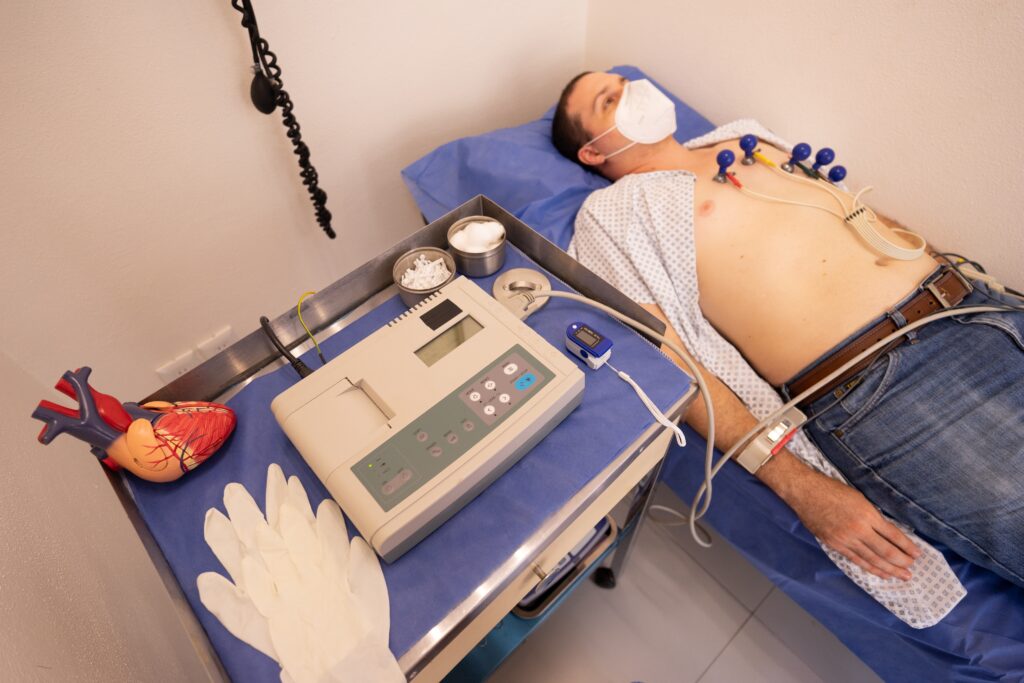
Having a heartache, what is the risk of complications?
What are the complications of heart pain?
Pain in the heart may persist and increase in intensity over the hours. Without prompt medical attention, severe or persistent heart pain can lead to heart failure and serious complications. The vital prognosis can be engaged.
Heartache, when should you worry?
During heart pain, certain signs should alert and require an emergency medical consultation. This is particularly the case when:
- sudden and intense pain , with a feeling of tightness in the chest;
- sharp pain on breathing ;
- persistent pain , which lasts more than 5 minutes and does not stop at rest;
- a diffuse pain , which extends in the neck, the jaw, the shoulder, the arm or the back;
- a fast or irregular heartbeat.
Heart pain, what to do?
Urgent examination
Very intense and/or persistent pain in the heart requires immediate medical attention. You should contact the medical emergency services by dialing 15 or 112.
Physical examination
If the situation does not constitute a medical emergency, the examination for pain in the heart can be carried out by a general practitioner.
Additional tests
Depending on the results of the clinical examination, an opinion and additional examinations may be requested. An appointment with a cardiologist may be recommended.
Treat the source of heart pain
The treatment of heart pain depends above all on the origin of these pains. Certain medications may be prescribed in particular to combat irregular heartbeats.
Prevent the onset of heart pain
It is possible to prevent some heart pain by limiting the risk factors. In particular, it should:
- adopt a healthy and balanced diet;
- maintain regular physical activity;
- to limit the consumption of products with exciting effects;
- limit stressors.
- bridge
- Allergies (overview)
- Achluophobia : all about the fear of the dark
- At what age can you do bodybuilding?
- Fatigue in the morning: causes and remedies


